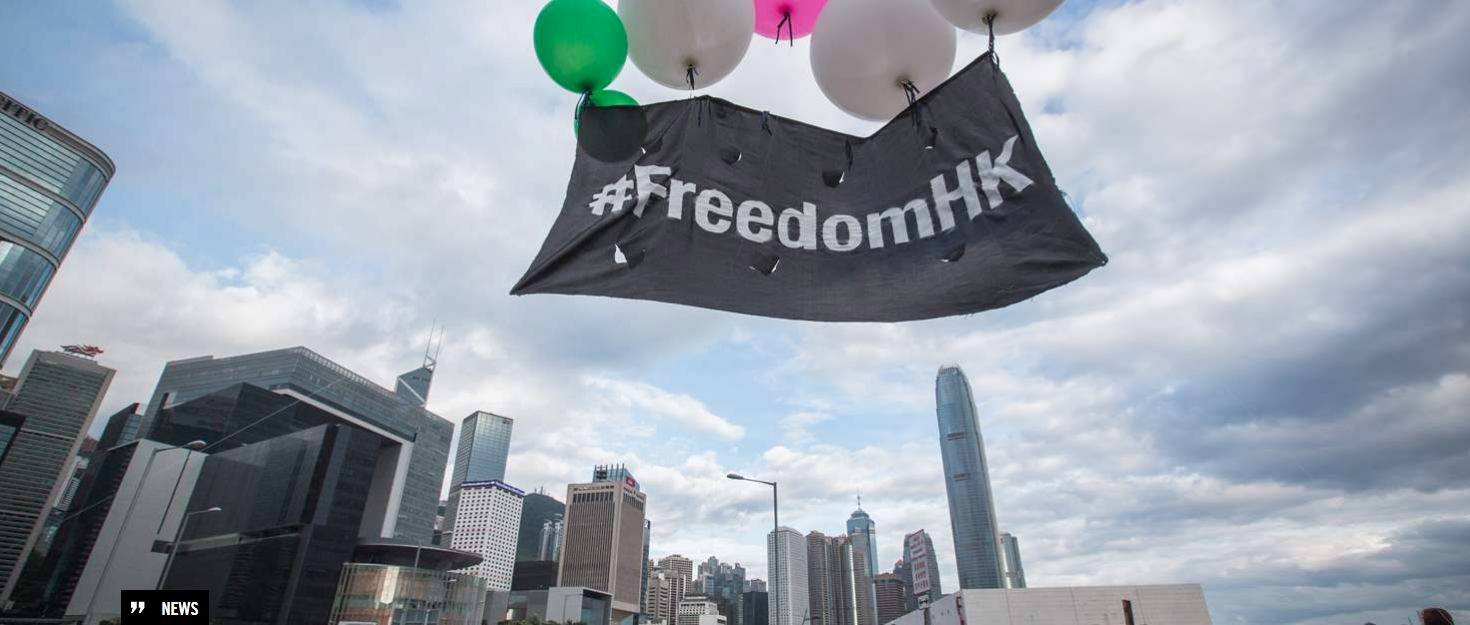This summer, university and high school students in Hong Kong took to the streets in huge numbers. Braving arrest, tear gas, pepper spray and rubber bullets, they have marched day after day to claim their rights.
On 4 September, Hong Kong’s Chief Executive Carrie Lam announced her government’s formal withdrawal of the Extradition Bill that had sparked the protests. But this was only one of the “five demands” that have propelled the movement.
Protesters also want the government to retract its characterization of protests as “riots”; an independent investigation into use of force by police; and the unconditional release of everyone arrested in the context of protests. They also want political reform to ensure genuine universal suffrage – the ability to choose Hong Kong’s leaders themselves – as set under the city’s mini-Constitution, the Basic Law.
Here three students tell Amnesty International why they’re not backing down now.
Joey
My name is Joey Siu, and I’m vice president of my university student union. I had planned to spend the summer holiday with my grandma, because when school starts I don’t get to see her much. I also had some plans to travel – the usual things that university students do on their break.
Instead, I protested all summer. I think it’s our responsibility as students to play a part in social movements. People who have the time and resources to protest have an obligation to safeguard Hong Kong’s core values of human rights and democracy.
The police response has been horrible. The first time I experienced tear gas was on 12 June. It was a very, very bad day. I was trying to distribute protective gear to protesters when tear gas was suddenly deployed at our first aid station. Tears poured uncontrollably from my eyes and I could hardly breathe. Other people have been beaten up by the police just for taking part in protests. This is why there needs to be an independent investigation into police actions, and one of the reasons why we aren’t backing down.
People in Hong Kong are really angry – we feel like there is no way back, so we must keep fighting. Although the government has now withdrawn the Extradition Bill, this was just one of our five demands, and we’ve still had no response to the others.
Most of my family didn’t know about my role in the movement until they saw me at a press conference on TV. They are so worried about me, so I don’t always tell them what I’m doing. When my parents saw the violence committed by the police they asked me to stop going to protests – but of course, I couldn’t do that.
I have no idea how these protests will end, or even what will happen tomorrow. We can only hope for the best, be water – and respect our fellow citizens.
Mickey
My name is Mickey. I am 17 years old and I’m in my last year of secondary school.
I never imagined I’d see 1 million people marching together – it’s been really eye opening. I may not be protesting at the very front, but I am always there to show my support. I’m also taking part in the boycott of classes, which I hope can put more pressure on the government.
Although Carrie Lam promised to withdraw the Extradition Bill, we will keep protesting and striking until the rest of our demands are met. This movement has grown into something much bigger than one bill, and the way police reacted to the protests has underscored the need for things to change.
The first time I witnessed protesters being beaten by the police was the night we occupied the entrance of the Legislative Council. My heart still beats really fast whenever I see the police running towards us. Sometimes I’m afraid that I’ll be arrested but I’m not going to stop now. People in Hong Kong are really angry, and the best thing we can do with this anger is to keep protesting.
Suki
My name is Suki and I study nursing at the Chinese University of Hong Kong. As well as marching at protests, I’ve been providing first aid to people injured by tear gas.
I will never forget one 15-year-old student who was barely able to breathe after inhaling tear gas. After a short break, he put on his gear and told us he had to go back to the front line.
I took part in the Umbrella Movement in 2014, and I occasionally went to vigils commemorating the Tiananmen Square crackdown, but I had never participated in a march. But when the government announced its plans for the Extradition Bill, I realized that in future I might lose the freedoms of assembly and expression I had been taking for granted. So, on 9 June, I took to the streets for the first time – accompanied by 1 million other people.
A few days later I joined my friends at a peaceful rally. I was very surprised that so many people came out again, but everyone felt helpless because the government wasn’t listening to our demands. But on 16 June, 2 million people came out to march. I decided I would keep going to the demonstrations and use my nursing knowledge to provide first aid to people who had been injured. Many people ask how these protests will end, and the truth is we don’t know. All I know is we have to keep going. The withdrawal of the Extradition Bill isn’t enough – this movement has shown how many Hong Kongers want fundamental changes. Our human rights are under threat, and we must stick together to stand up for them.
Amnesty international has called for the full withdrawal of the Extradition Bill, and for a prompt, effective, impartial and independent investigation into the unnecessary and excessive use of force in the policing of the protests.






















